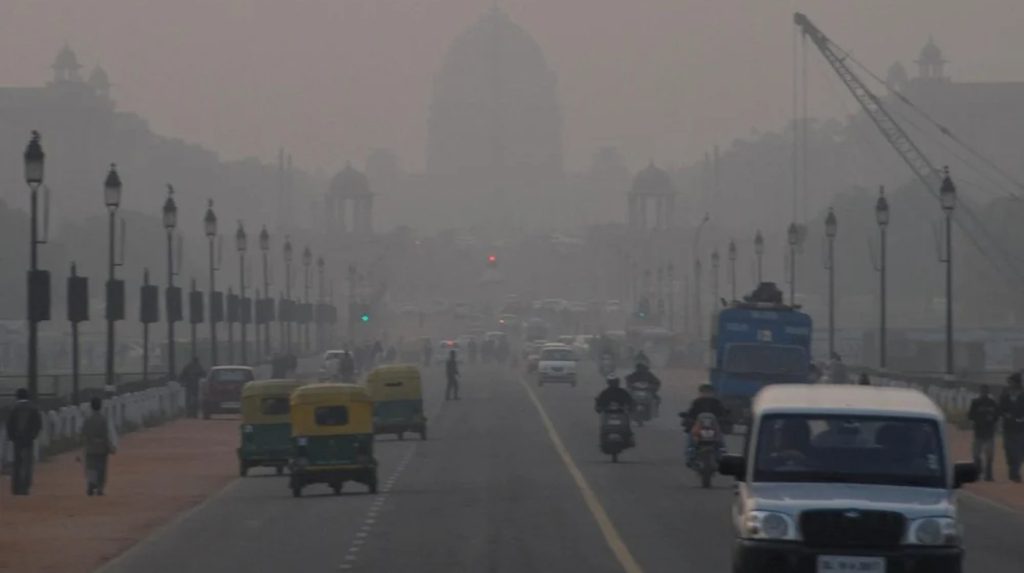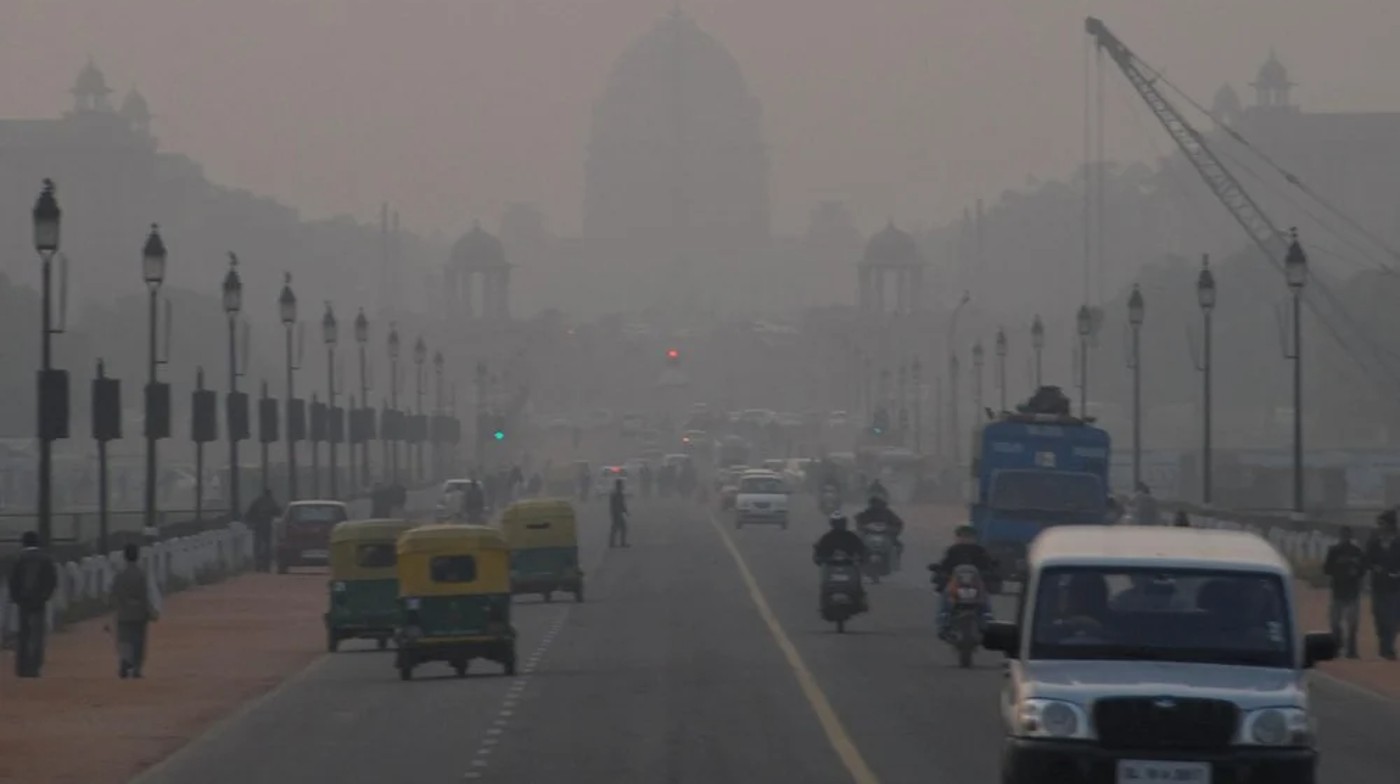
A spray of common bacteria and fungi has been developed to rapidly biodegrade agricultural waste in the fields of India, enriching degraded soils and saving thousands in material and labor costs.
Furthermore, it’s eliminating the practice of burning post-harvest waste, a large contributor to one of India’s most infamous societal problems: smog.
Set amidst a sea of burning agricultural waste, New Delhi, has the most polluted air of any world city, while India has 26 of the world’s 30 most polluted cities measured by air quality.
This is in large part due to the richness of the farmland in the for north-Indian states of Haryana, Rajasthan, Punjab, and Uttar Pradesh. Producing rice and wheat for much of the country and the world, after harvest most farmers simply burn all the stalks and leaves left over to quickly clear the fields for the next planting.
This “stubble burning,” takes place on 5.7 million acres of rice paddy, and despite being illegal for decades, continues mostly unabated.
Nurture.farm is an ag-services company that’s pioneered a groundbreaking solution to the stubble burning/air pollution problem. Called the PUSA Decomposer, it’s nothing more than 7 species of fungi and bacteria present in India’s soils. Developed by the Agricultural Research Institute in Delhi, this microbial spray breakdowns all leftover stubble in just 3 weeks. After just 8 days, knee-high rice stalks simply disappear.
RELATED: New John Deere Tractors Plow Day and Night With No One in the Cab: Autonomous Farming Debuts in 2022
Nurture works with mostly small farms, and the reduction of burning by their clients has prevented 141,000 tons of ash from entering India’s air, another 2,000 tons of other particulate matter, and 1 million tons of CO2.
Labor saving device, world saving device
The best part is all decomposed stubble is fully-reintegrated into the soil. Depletion of soil matter is a world-threatening problem, and so Nurture is just one of 12 ag-tech companies that have been licensed to try and integrate the PUSA decomposer into Indian society.
CHECK OUT: Chinese Method For Growing Veggies Year-Round in Frigid Canada Really Works–And Has No Heating Costs
The stubble represents the largest, and by far easiest ways of restoring soil nutrients; much cheaper than buying artificial fertilizer. One study from the International Maize and Wheat Center found that if rolled into bails and stacked atop one another, the stubble from India’s fields would arrive at the moon, and that if there could only be an alternative found for burning, India could reduce her ag-related emissions by 78%.
Farmers registered with Nurture can avail themselves of a totally free mechanized spraying service to apply the PUSA decomposer to their fields, removing most of the use barriers for the 25,000 farmers who use Nurture for their 5 million total acres.
Compared to burning, Nurture’s data on the initial harvests has been dramatic. There’s been a 25% reduction in costs from the need to buy artificial fertilizer, and a 20% increase in farmers’ income due to the ability to rotate in short term crops between the rice and wheat cycles.
MORE: These Solar Panels Also Pull in Water Vapor to Grow Crops in the Desert
“It was exhilarating to see that in all the fields where the spraying protocol was followed, the stubble started to decompose within just eight days,” said COO Dhruv Sawhney. “This garnered the farmer’s trust and appreciation, which was highly motivating for us.”
“We’ve emerged more confident and determined post phase-1 of the initiative and will
continue our efforts to develop the product and our tech capabilities to eliminate the
environmental hazard of crop stubble burning in the coming three years.”
(WATCH the video for this story below.)
FERTILIZE Those Feeds With Good News; Share This Story…





















In the video, he says that after spraying his field with the microbes, he plows under the stubble so he can plant potatoes. Doesn’t he know that deep plowing can harm the soil enriching earthworms, some of the most valuable resources in his field? No till planting while adding compost would be much better for soil fertility and crop production. Still thankful there are small family farms like his, instead of large corporations polluting the earth with their toxic herbicides and pesticides.